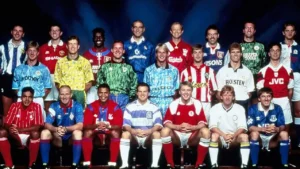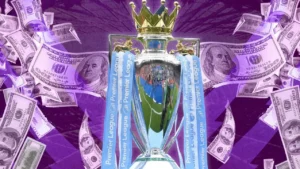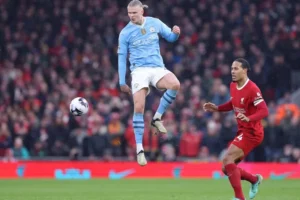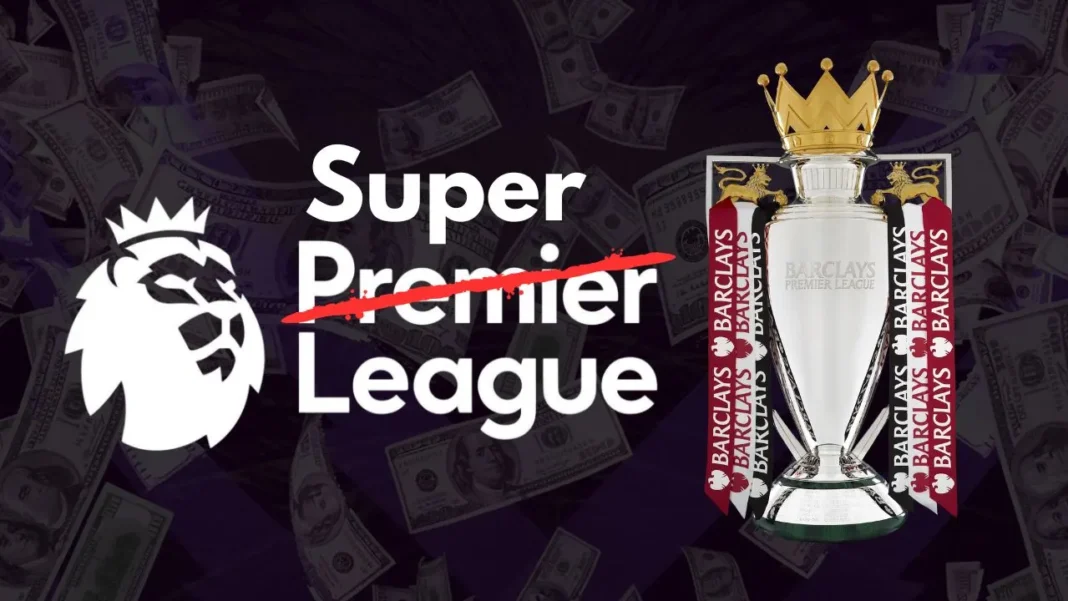The Premier League is the “Super League”, I’m pretty sure you must’ve heard this sentence a lot in the last 5 years, and must be thinking Oh, another article just hating on the Premier League because they are rich.
To answer that well, yes and no. Yes, the Premier League is super-rich, and no, I’m not hating on the Premier League; in fact, I love it.
But in this article, I’m gonna try and break it down to you why the cliche ‘The Premier League is the Super League’ is actually true, drawing comparisons between both the Premier League and the originally proposed Super League.
So let’s get down to business.
Why Premier League is the real Super League
So before we get straight into comparisons, let’s first look at why and how the Premier League came into existence, it will make things clearer.
Why was the Premier League created?

Well, the short answer to this would be Money, but let’s get into more details.
Before football started to commercialise in the late 80s and the early 90s, Matchday revenue (ticket sales) was a major source of income for all the clubs, and broadcasting revenue was just peanuts.
Whatever little Broadcasting Money came in was then distributed among the 4 tiers of English Football by the FA, and this didn’t go well with the big English clubs. They thought they were bringing in a lot of audience and hence wanted to be compensated accordingly.
What this meant was that the English Football League ( Top Flight football in England before the Premier League) was lagging behind leagues like La Liga and the Serie A, and the top players preferred to play in those leagues abroad.
So in the mid-1980s, the Big Five ( Manchester United, Arsenal, Tottenham Hotspur, Liverpool, and Everton) threatened a breakaway league. Now the FA had to change the way it distributed the money among the clubs, and those Big Clubs got a pay raise, but it still wasn’t enough.
Secret meetings between the owners of the big clubs and negotiations with top broadcasters kept happening, and finally, in 1992, the Premier League was born.
Rupert Murdoch’s BSkyB won the rights to broadcast the Premier League for £304 million over five years, and the Premier League never looked back.
Although the inaugural season had 22 teams participating, it was the BIG 5 that paved the way.
This will all sound very familiar very soon, if it doesn’t already.
Premier vs Super League: Why Premier League has become everything we feared the Super League would be.

In April 2021, Florentino Perez announced the European Super League, which included 12 clubs, all the big boys from Spain, Italy, and, of course, England. A league where 20 clubs would compete, 15 of which would be the permanent members, dubbed as the founding clubs, and 5 places would be given to clubs across Europe based on merit.
But the plans did not materialise because it faced heavy backlash from the authorities and the fans alike. Everyone had their own red flags with the Super League; the authorities worried about the shift in power. For fans, football was getting way too commercialized; this would challenge the integrity of sports, and many argued that the money, power, and fame would only be concentrated to a select few clubs.
And these concerns do make a lot of sense, but when you closely look at the Premier League over the past 2 decades, you will notice a lot of similarities.
The Permanent Members
The biggest problem everyone had with the Super League was that the founding clubs would never be relegated, making it unfair to other teams. But if you look at the Premier League, none of its founding members (the big five) have ever been relegated since the inception of the Premier League.
Now the Big 5 doesn’t exist, it’s the big 6 now with Everton moving out, and the likes of Chelsea and Manchester City having joined the party. Chelsea also have never been relegated, and Manchester City has been in the Premier League for the last 25 years. With the PIF takeover of Newcastle United, we might soon see a BIG 7. Surprisingly, Everton, who fell down the ladder, have survived throughout the Premier League era, dangling on the edge of relegation many times.
My point here is that while the Big 5 didn’t explicitly mention that they were going to be the permanent members, they knew very well that with the kind of structure that they had negotiated, they were never really going to go down.
Money
The Premier League distributes its broadcast revenue in a 50:25:25 ratio. 50% is divided equally among all the clubs, 25% is based on your position on the table, and the rest depends on how often you are shown on TV.
Basically, the clubs at the Top Grab a bigger slice of the Pizza.
In the past decade, the Big 6 have grown leaps and bounds in terms of revenue and have further separated themselves from the rest of the pack. But this in no way means that the other clubs don’t make money.
The teams in the bottom half of the Premier League make more money than the teams finishing in the top half of Serie A.
The current Domestic Broadcast deal of the Premier League for the 2025-2029 cycle is valued at a total of £6.7 billion, which is approximately over €7.7 billion, roughly €1.9 billion per season
LA LIGA’s domestic broadcast deal is worth €4.95 billion for 5 years, which is roughly €990 million per season. While the Bundesliga makes around €1.12 billion per season and the Serie A makes around €900 million per season.
It’s clear that the Premier League makes almost double the amount of money than its competition, and this doesn’t even include international broadcast rights, where the Premier League is way ahead in comparison to any other league.
Power
Now, the Premier League has done a lot of things right to get to where they are right now, but the impact this has had on a broader aspect is that clubs outside the Premier League just cannot keep up with them.
Just look at this, This Summer 2025/26, the Premier League clubs spent a total of €3.58 billion on buying new players. Bundesliga, Serie A, LA LIGA, and Ligue 1 combined spent a total of €3.39 billion.
Remember, at the beginning of the article I told you how in the 80s Players preferred the Italian and the Spanish league over the English League, well now the tide has changed. Premier League players are also among the highest-paid players in Europe; thus, more and more players want to play in the Premier League.
This is exactly what everyone feared would happen to the Clubs outside of the Super League: that they would be left behind and would not be able to compete with the clubs in the Super League because of the money involved.
Why is the Premier League so Lucrative?

Premier League fans do like to call the Premier League the most competitive league in the world, while that is very debatable, and the verdict depends on who you ask. What is a fact is that the Premier League produces a blockbuster match every week. Why? It’s simply the numbers game.
While LA LIGA has Real Madrid, Barcelona, and to some extent Atletico Madrid, Bundesliga has Bayern Munich, Serie A has Juventus, AC Milan, and Inter, Ligue 1 has PSG, The Premier League, on the other hand have the Big 6, who each have a massive global fan base, with some of the best squads in the world.
So, where LA LIGA produces 4 to 6 blockbuster games a season with El Clásico and Derbies, the Same with all the other leagues, the Premier League can do it week in week out. And when you have these box office fixtures happening frequently, it becomes easy to sell.
Again, this is exactly what the Super League was leveraging on, the global fan bases of these mega clubs to produce box office fixtures every week.
Conclusion
Now I’m not defending or justifying the creation of the Super League. What I’m trying to say is that we need to understand that Football has changed massively in the past decades, and sometimes we have to look at it through a different lens.
Because let’s be honest, we are all glory hunters, we do have our reasons why we love our clubs, but at the end of the day, we all want our teams to do well, get the best players, and win trophies. And none of that happens without money. There are only so many ways to bring that money in.
The Super League wasn’t exactly a “sin”. If you think about it, the current Champions League format, the expanded Club World Cup—they’re all steps in the same direction. History shows us that while every breakaway attempt may have failed on paper, the big clubs always ended up getting what they wanted in some form.


